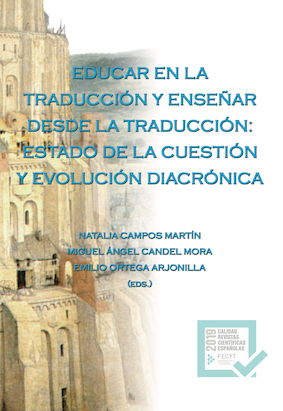Study of the Abregé de l'Histoire ancienne, ou des Cinq grands empires (J. B. Duchesne) and its translation into the Spanish Compendio de la Historia Antigua o de los Cinco Grandes Imperios
DOI:
https://doi.org/10.7203/qf.24.16313Keywords:
history, translation, translation studies, eighteenth century, Duchesne Abstract
Abstract
This paper analyses the Abregé de l’histoire ancienne of the French Jesuit Jean-Baptist Duchesne (1743) and its translation into Spanish Compendio de la Historia Antigua (1792-1793). This work is a manual of Ancient History which narrates, from a biblical perspective, the succession of the great empires of the Ancient World, their main dignataries and milestones. After an introduction, a selection of compared extracts are exposed focusing on the most relevant divergences related to the form and to the sense between the original text and the translation. The final conclusions reflect on the method, the strategy and the translation techniques of this Enlightenment document as a divulgation instrument.
 Downloads
Downloads
Downloads
Published
How to Cite
-
Abstract657
-
PDF (Español)308
Issue
Section
License
 Este obra está bajo una licencia de Creative Commons Reconocimiento-NoComercial-SinObraDerivada 4.0 Internacional.
Este obra está bajo una licencia de Creative Commons Reconocimiento-NoComercial-SinObraDerivada 4.0 Internacional.
Authors who publish with this journal agree to the following terms:
- Authors retain copyright and grant the journal right of first publication with the work simultaneously licensed under a Creative Commons Attribution License that allows others to share the work with an acknowledgement of the work's authorship and initial publication in this journal.
- Authors are able to enter into separate, additional contractual arrangements for the non-exclusive distribution of the journal's published version of the work (e.g., post it to an institutional repository or publish it in a book), with an acknowledgement of its initial publication in this journal.
- Authors are permitted and encouraged to post their work online (e.g., in institutional repositories or on their website) prior to and during the submission process, as it can lead to productive exchanges, as well as earlier and greater citation of published work (See The Effect of Open Access).




